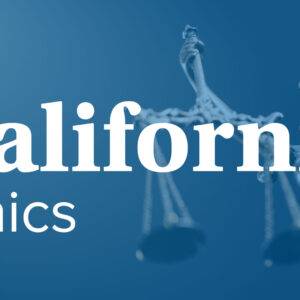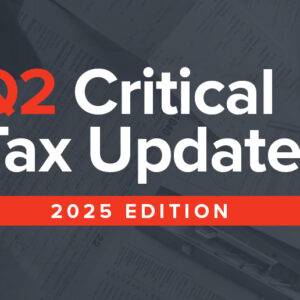WESTERN CPE BLOG
Providing the latest tax news, information, and updates for tax and finance professionals
Comparing EA vs CPA in Salary, Scope, and Career Paths in Financial Accounting
Navigating the World of Tax Professionals and Certified Public Accountants
Are you on the crossroads of choosing between becoming an Enrolled Agent (EA) and a Certified Public Accountant (CPA)? The decision is more than just about comparing EA vs CPA salary. Each career path has its merits and focus, whether it’s financial accounting, tax preparation, or even financial planning. Here, we dive deep into the specifics of these roles, from their educational qualifications to their place in today’s business environment.

EA vs CPA Salary: The Financial Implications
One of the most compelling factors when choosing between becoming an EA or a CPA is salary. As of 2023, Certified Public Accountants generally earn more, with an average annual salary of $77,370, compared to the $60,725 average for Enrolled Agents. While CPAs earn more, many tax professionals find the EA path more fulfilling due to its micro focus on tax issues and less rigorous exam cycle.
The Breadth and Depth of Roles: EAs and CPAs in the Business Environment
Enrolled Agents: The Tax Specialists
EAs are federally-licensed tax professionals who are specifically licensed by the IRS to represent taxpayers before the federal government. The role of an Enrolled Agent primarily revolves around tax matters like tax returns, tax planning, and representing taxpayers in IRS office reviews or audits. Enrolled Agents are also well-versed in tax-related issues like determining tax liability and providing tax advice. They are typically adept in preparing tax returns and can represent taxpayers before the IRS.
Certified Public Accountants: The Financial All-Rounders
CPAs, on the other hand, require a bachelor’s degree and a state’s board certification, usually after passing the comprehensive four-part CPA exam. CPAs are more than just tax professionals; they also serve as financial advisors and business consultants. They are well-versed in financial accounting and reporting, can conduct audits, offer business environment and concepts advice, and even specialize in personal finance management.
The Exam Path: Special Enrollment Examination vs CPA Exam Administered
For Enrolled Agents: The Special Enrollment Examination (SEE)
For those looking to earn the Enrolled Agent (EA) credential, passing the Special Enrollment Examination (SEE) is the foundational step. Unlike the extensive CPA exam, the SEE is generally considered less demanding, focusing specifically on tax matters. The exam is divided into three main components: individual taxation, business taxation, and representation practices and procedures. Each section tests the candidate’s knowledge and expertise in these specific areas, preparing them for the responsibilities they will face when representing taxpayers before the IRS.
The SEE is designed to assess the examinee’s understanding of tax codes, tax theory, ethics, as well as their practical application skills. Because the EA credential is focused on tax issues, there is no requirement for a college degree or other educational qualifications beyond passing this exam. This makes the EA credential an attractive option for those who want to specialize in tax-related matters without delving into the broader scope of financial accounting and reporting.
For CPAs: A Rigorous and Multifaceted Journey
Becoming a Certified Public Accountant (CPA) is an entirely different ball game, with its own set of challenges and complexities. Unlike the SEE, the CPA exam is administered by each state’s board of accountancy and is universally recognized as one of the most rigorous professional exams. The CPA exam is comprised of four extensive tests, each focusing on a different aspect of accounting and finance:
-
Auditing and Attestation (AUD): This section tests the candidate’s understanding of auditing procedures, generally accepted auditing standards, and other issues related to attest engagements.
-
Business Environment and Concepts (BEC): This part focuses on various elements of the business environment, from management and governance to economic concepts and information technology.
-
Financial Accounting and Reporting (FAR): Here, the candidate is assessed on their knowledge and skills related to financial accounting procedures and reporting practices, including the preparation of financial statements.
-
Regulation (REG): This section tests knowledge of ethics and professional responsibilities, business law, and federal taxation for individuals, entities, and property transactions.
Each section of the CPA exam needs to be passed within an 18-month window, starting from the date the first test is passed. This stipulation adds an element of time-sensitive pressure, making it a marathon where both endurance and expertise are tested.

Continuing Education: A Lifelong Commitment to Learning
Both Enrolled Agents and Certified Public Accountants are required to keep abreast of changes in tax law, accounting practices, and financial regulations through continuing education courses. For EAs, the IRS mandates the completion of 72 hours of continuing education courses every three years. These courses are typically focused on taxation and representation matters, allowing Enrolled Agents to stay up-to-date on current tax codes and representation practices.
For CPAs, the requirements are often more rigorous and can vary depending on the state board’s stipulations. Many states require CPAs to complete up to 40 hours of continuing education each year. These courses can span a broader range of topics, including financial accounting, auditing, ethics, and even specialized areas like forensic accounting or cybersecurity.
The commitment to ongoing education ensures that both EAs and CPAs maintain the highest level of expertise and ethical standards. It allows them to provide the best possible services to their clients, whether they are offering specialized tax advice as an EA or a more comprehensive range of financial services as a CPA.
Navigating the Tax Season: EAs and CPAs at Work
During the taxing season, both EAs and CPAs are fully engaged in preparing tax returns, although their approach may differ. EAs, often former IRS employees, use their in-depth tax knowledge to provide tailored tax advice and handle complex tax situations. CPAs, however, offer a broader range of tax services, combining their accounting practices to provide comprehensive financial planning alongside tax preparation.
What Fits Your Needs: EA or CPA?
For the Self-Employed and Sole Proprietorship
If you’re a sole proprietor or self-employed, an EA can be more suited to your specific tax needs. They offer more focused tax services, often at a lower cost, making them ideal for simpler business structures.
For Larger Enterprises and Complex Accounting Needs
If you have a more complex business environment or need extensive accounting services beyond taxes, a CPA is your go-to professional. CPAs can offer a holistic approach to your business and personal financial needs, from tax planning to strategic financial planning.
The Primary Difference: Highest Credential Awarded vs Specialized Service
The primary difference between the two roles lies in the scope and depth of their services. CPA stands as the highest credential awarded in the accounting field, covering a wide range of financial services beyond taxation. In contrast, the EA credential specializes in tax matters, offering an in-depth, nuanced service to taxpayers.
In Conclusion: Tailoring Your Career Path Based on Your Goals
Whether you aspire to be an Enrolled Agent, providing specialized tax consultation, or aim to become a CPA with a broad understanding of financial matters, the decision should align with your career goals and lifestyle choices. Take into consideration not just the EA vs CPA salary, but also the educational qualifications, continuing education requirements, and the kind of work-life balance each profession offers.
Your choice between becoming an EA or CPA should be based on a nuanced understanding of what each role entails, from tax preparation to financial planning and business consultation. Both are highly respected roles with their own sets of challenges and rewards, tailored to meet varying individual needs and career aspirations.
-
Self-Study
Ethics for California
$116.00 – $136.00 Select options This product has multiple variants. The options may be chosen on the product page -
Webcast
Q2 Critical Tax Updates
$98.00Original price was: $98.00.$49.00Current price is: $49.00. Add to cart -
Self-Study
Individual Income Tax Credits & Due Diligence Requirements
$145.00 – $175.00 Select options This product has multiple variants. The options may be chosen on the product page -
Self-Study
Become an Expert on Lookup Functions
$58.00 – $78.00 Select options This product has multiple variants. The options may be chosen on the product page -
Self-Study
Accountant Ethics for Delaware
$116.00 – $136.00 Select options This product has multiple variants. The options may be chosen on the product page -
Self-Study
Error-Proofing Excel Spreadsheets
$145.00 – $175.00 Select options This product has multiple variants. The options may be chosen on the product page







